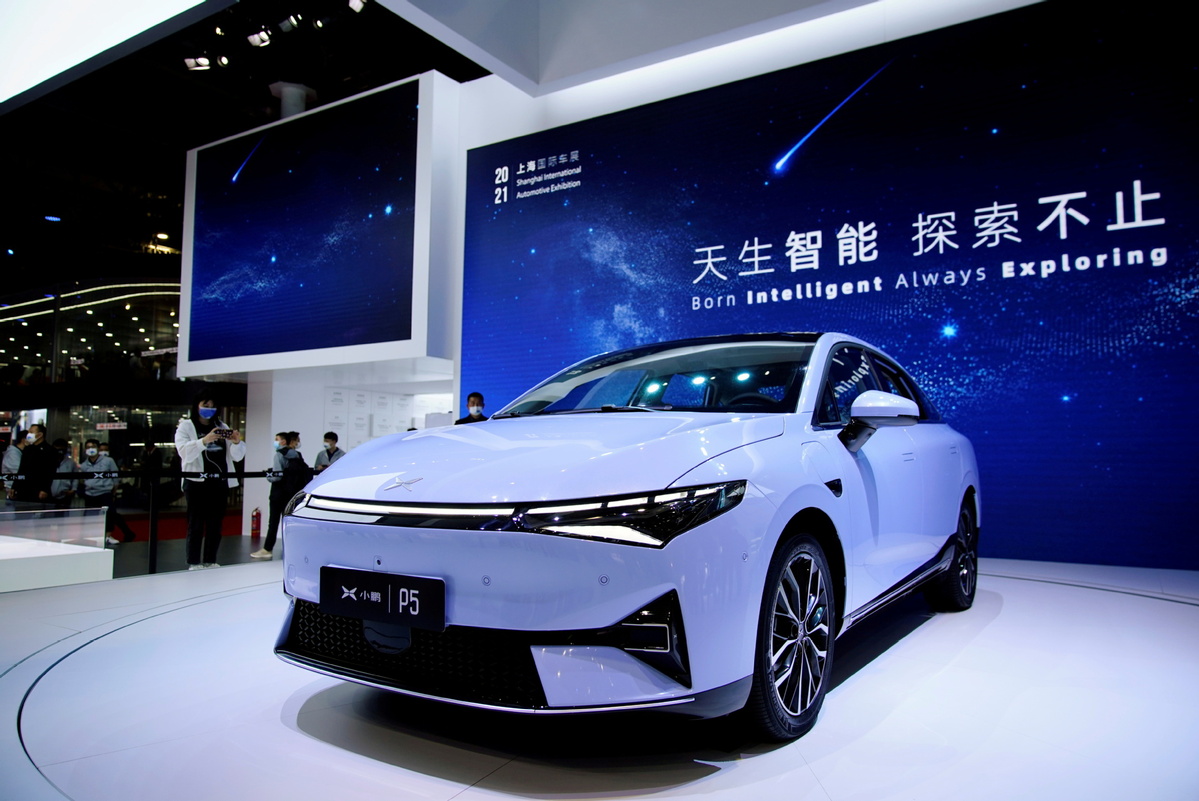US-listed Chinese NEV startups look to Hong Kong bourse

Within one month of Xpeng's debut in Hong Kong, Nasdaq-listed new energy vehicle startup Li Auto said on Tuesday that it is to issue 100 million shares at the Hong Kong Stock Exchange.
Li Auto, which is scheduled to trade on Aug 12, is giving a maximum offer price of HK$150 ($19.29) per share. The shares are expected to help Li Auto raise $1.93 billion in its Hong Kong initial public offering.
The Beijing-based carmaker said the money raised will be used on including developing electric vehicles and autonomous driving, expanding production capacity as well as increasing its dealerships.
Guangzhou-based Xpeng, which went public in New York in 2020, raised $1.8 billion in its Hong Kong debut in July, thanks to investors' rising interest in electric vehicle makers.
Nio, the first of the three leading Chinese startups to float in the United States, has not released plans on whether it will list in Hong Kong.
Analysts said going back to list in Hong Kong will make it easier for the startups to raise money, as the absolute majority of their deliveries are in China, which is the world's largest vehicle market, and China is determined to lead the sector's development.
Earlier in the week, Li Auto reported a more than three-fold jump in the deliveries of its only mid-size crossover SUV, Li ONEs, with 8,589 sold in the month. It beat Nio and Xpeng in terms of sales in July as the best-selling startup for the month.
In the first seven months of this year, Li Auto delivered 38,743 vehicles, more than its total deliveries in 2020.
China is the world's largest market for electric cars and plug-in hybrids. By the end of May, there were 5.8 million such vehicles on Chinese roads, roughly half of the global total, said Fu Bingfeng, secretary-general of the China Association of Automobile Manufacturers.
In the first six months of the year, sales of electric cars and plug-in hybrids in China reached more than 1.2 million units, around 10 percent of total new car deliveries in the same period.
The association has scaled up its estimated NEVs sales to 2.4 million this year, up from its previous estimate of 1.8 million units.
Guo Shouxin, an official at the Ministry of Industry and Information Technology, said China's auto industry is expected to see faster development during the 14th Five-year Plan (2021-25) period.
"The trend of the Chinese auto industry's positive development in the long run will not change, and our determination to develop smart electric cars will not change either," Guo said at an industry forum in June.

